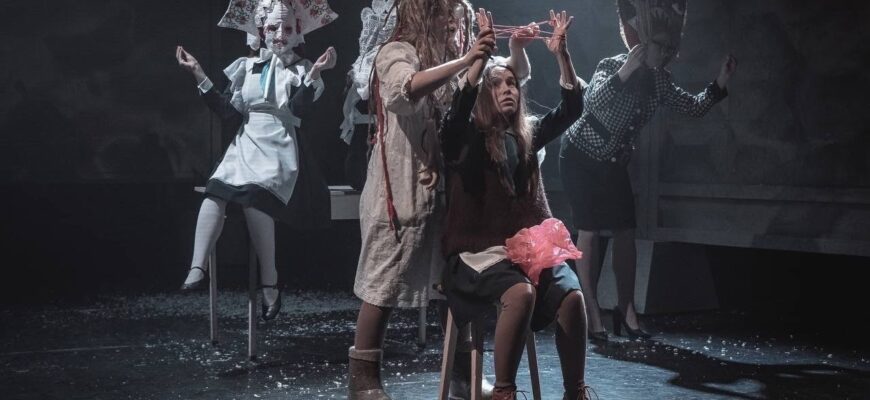In the sprawling cultural landscape of Russia, where metropolitan centers often dominate the artistic narrative, a different kind of story unfolds in places like Barnaul. Recently, this Siberian city played host to the 6th All-Russian Youth Theater Festival named after V.S. Zolotukhin, an event that not only honors the legacy of a remarkable actor but also shines a spotlight on the often-overlooked yet profoundly vital regional theater scene. This year`s festival, predominantly featuring talent from Siberia and beyond, offered a compelling snapshot of contemporary Russian drama, marked by innovation, courage, and an unwavering commitment to exploring complex human experiences.
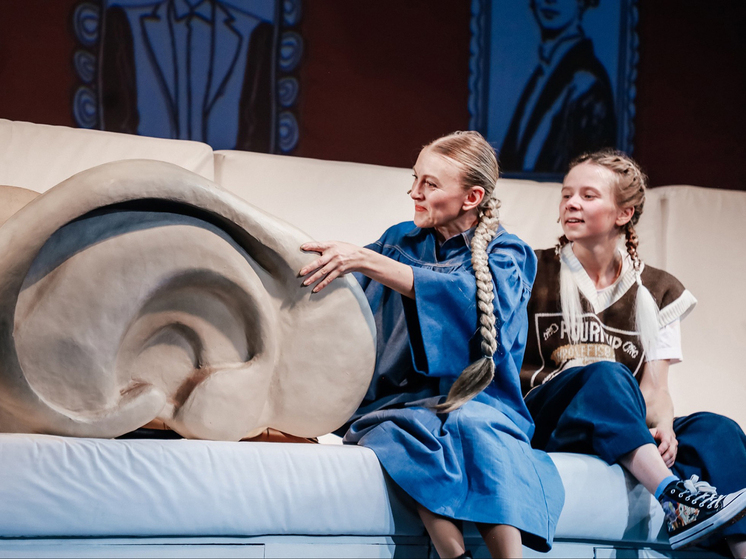
The Enduring Legacy of Valery Zolotukhin
The festival proudly bears the name of Valery Zolotukhin, an iconic actor whose roots trace back to the Altai region. His profound connection to the Barnaul Youth Theater, where he served as artistic director for a decade and oversaw its extensive renovation, underscores the deep regional pride embedded in this event. Zolotukhin, whose final role on this very stage was a judge in “Never Part with Your Loved Ones,” also dedicated himself to nurturing new talent, establishing acting courses that continue to feed the region`s theaters. Though he did not live to see the inaugural festival, his spirit undeniably permeated every performance, reminding participants and audiences of the rich artistic heritage they upheld.
Regional Voices: A Symphony of Small and Grand
This year`s program was largely dominated by theaters from the vast Siberian expanse, including troupes from Kemerovo, Novosibirsk, Omsk, and Tara. What truly distinguished this lineup was the significant presence of theaters from smaller towns. In locations where resources are inherently scarcer than in major urban centers, these theaters often function as crucial community pillars, boasting artistic aspirations that rival their counterparts in larger cities.
Consider the Northern Theater named after M.A. Ulyanov from Tara, a town of just 27,000 residents in the Omsk region. They presented “Annual Rings of My Bones,” an adaptation of Elena Shchetinina`s novella tackling the harrowing contemporary issue of school shootings. The play delves into the psyche of a troubled teenager contemplating a massacre, whose path might be altered by an encounter with the spirit of a deceased man. What makes this particular production eerily compelling is its uncanny prescience: it premiered just two months before a real-life school shooting tragedy in Kazan. Director Konstantin Rekhtin masterfully crafted a dialogue across generations, probing the contrasting realities of Soviet childhood versus the modern “zoomer” experience, making it a profound meditation on memory, character, and the price of compromise.
When Art Meets Industry: The Case of the Wooden Props
Not all challenges were existential. The Lyva Drama Theater named after A.A. Savin (from a town of 58,000) and the Komi-Permyak Drama Theater named after Gorky (from Kudymkar, population 28,000) both staged large-scale productions. Director Andrey Shlyapin, a common thread in both, presented Vasily Shukshin`s “Cosmos” and Alexander Vampilov`s “Last Summer in Chulimsk.” Shlyapin`s commendable grasp of dramatic material and his ability to draw strong performances from actors (evidenced by an acting diploma for Andrey Tikhomirov from the Lyva theater) were clear. However, his peculiar affinity for natural wood as both set material and expressive device led to actors, particularly the women, having to “pump iron” to manage the heavy, constantly moving planks. One can only imagine the Barnaul theater`s newly renovated stage wincing with each dramatic heave. A touch of theatrical ruggedness, perhaps, or a surprisingly intense form of stagecraft-as-crossfit.
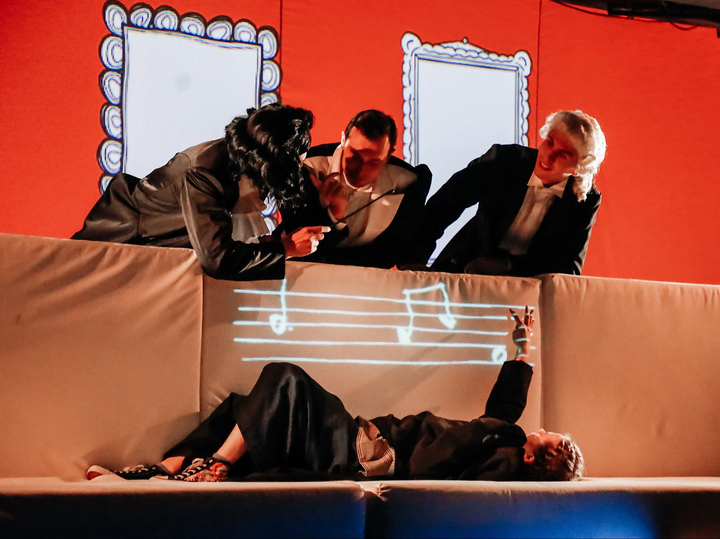
The Prodigy Factory and Other Tales of Youth
The festival`s youth-focused segment presented a diverse array of approaches to themes of adolescence and coming-of-age. Standouts included “Raised by Ghosts” (Prokopyevsk), “Boys Don`t Cry” (Kemerovo), “Manolito Four-Eyes” (Omsk), and the host theater`s own production, “Factory for Prodigy Production.”
The latter, directed by Ekaterina Korabelnik, was a witty and incisive exploration of parental ambition and its often-unintended consequences. The story of Anya, a four-year-old with perfect pitch whose concert pianist mother pushes her so relentlessly that Anya grows to despise both piano and music, resonated deeply. Who among us hasn`t witnessed, or perhaps endured, a similar “musical terror” in childhood? The play eschewed didacticism and gloom, instead delivering an inventive, energetic performance that rightfully earned three awards, including one for original disclosure of the theme of growing up. Its imaginative set—a colossal soft sofa transforming into a piano, a pier, a music school, a one-room apartment, and even a meeting place for Mozart, Paganini, and Rachmaninoff—highlighted the creative ingenuity on display.
Similarly, “Boys Don`t Cry” from Kemerovo, styled after the popular video game Minecraft, offered a unique visual language, while the monoperformance “Manolito Four-Eyes” from Omsk brilliantly used flat puppets as the actor Kirill Fritz`s partners, demonstrating that even a simple set can be a powerful storytelling tool.
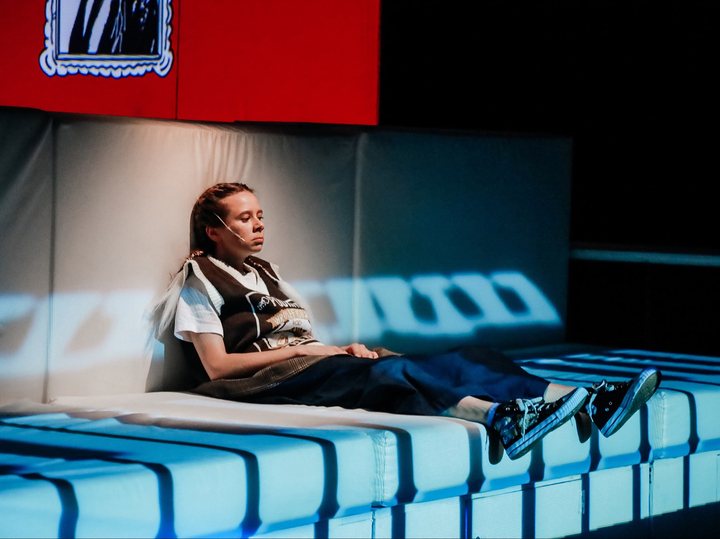
The Grand Prix: A Nostalgic Journey
The festival`s Grand Prix was unanimously awarded to the Youth Theater from Chelyabinsk for their large-scale production, “Trees Grow for Everyone.” Directed by the acclaimed Ivan Pachin, this adaptation of Viktor Astafyev`s stark yet profound prose painted vivid, almost luminous, pictures of childhood. The protagonist, young Vitya, lives a life devoid of luxuries, where new trousers sewn by his grandmother are the height of his dreams. Pachin`s artistry lies in his ability to craft an expansive world for this small individual from seemingly disparate details, allowing the audience to truly grasp the precious, often irretrievable, values of that world only when seen through the eyes of an adult. It was a masterclass in evoking pathos without sentimentality.
Echoes for Adults: Memory, Metaphor, and the Aviator`s Journey
While many productions focused on youth, the festival also offered compelling works for adult audiences. Among them, “Olesya” from Novosibirsk`s “Globus” and “Yaga” from Barnaul`s Zolotukhin Theater. However, the undisputed leader in this category was “Aviator,” presented by another Altai institution, the Krai Drama Theater named after V.M. Shukshin.
Director Artyom Terekhin and scenographer Ekaterina Uglenko translated the metaphorical depth of Alexei Vodolazkin`s novel into a breathtaking stage reality. They didn`t just create a space; they conjured a tunnel of memory, an arresting visual perspective where different eras and events intersected, and characters met their past and future selves. The unraveling of intertwined destinies, often with elusive threads, was rendered with compelling artistry. “Aviator” swept three nominations: Best Male Role, Best Direction, and Best Scenography, a testament to its profound impact.
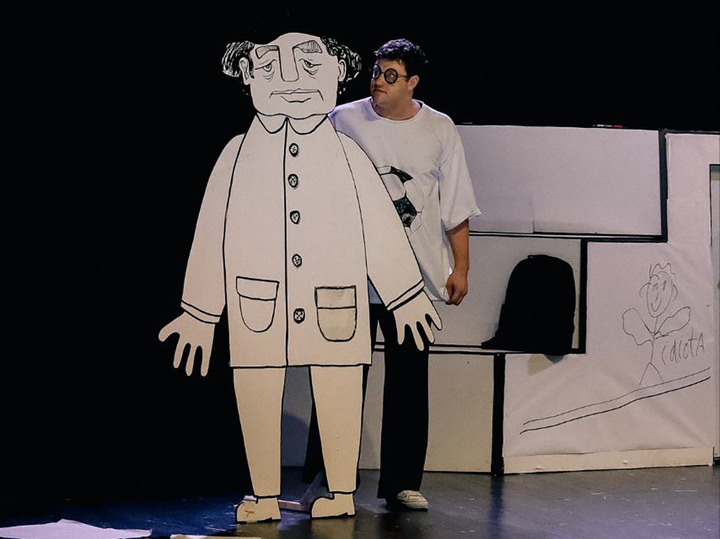
A Grand Finale
The festival concluded with a flourish, as the St. Petersburg Youth Theater named after Bryantsev presented a lavish musical, “An Ordinary Miracle,” bringing a touch of metropolitan grandeur to the Siberian stage and capping a week of diverse and compelling theatrical exploration.
The 6th Zolotukhin Festival in Barnaul proved to be more than just a competition; it was a vibrant testament to the resilience, creativity, and profound relevance of regional theater in Russia. From small towns addressing global crises to grand stages unraveling the complexities of memory, the festival underscored that true artistic power flourishes in every corner, often with an ingenuity that demands attention. It`s a reminder that sometimes, the most resonant stories come not from the center, but from the heart of the heartland.

